Indigenous Governance Database
Economic and Community Development
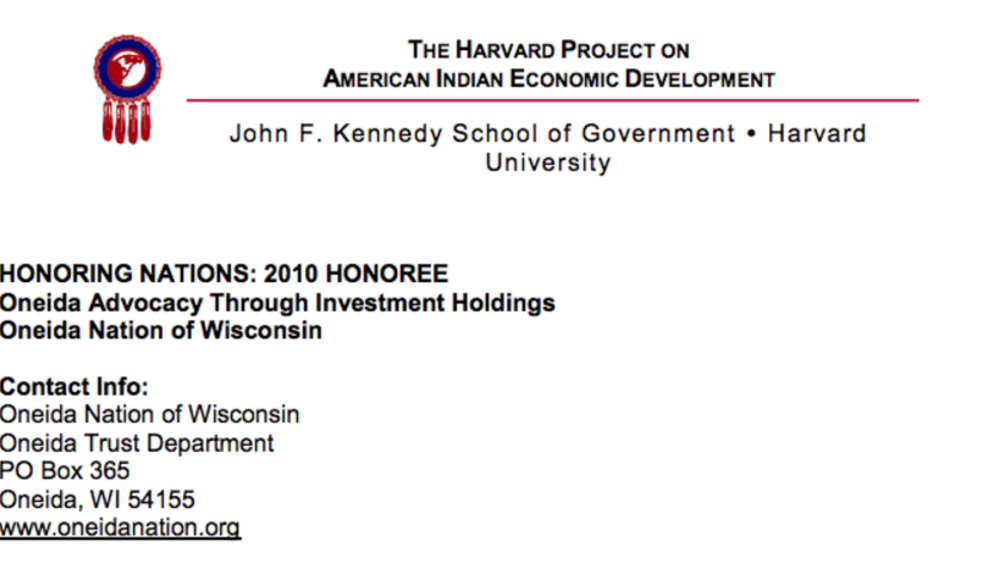
Oneida Advocacy Through Investment Holdings
Thirty years ago, most Native nations in the U.S. had few financial resources available for investment. With the passage of the Indian Self-Determination and Education Assistance Act (Public Law 93-638) in 1975, many tribes began to reclaim the governance of their nations – and with such assertions…

Why beggar thy Indian neighbor? The case for tribal primacy in taxation in Indian country
The law governing taxation in Indian country is a mess. The accretion of common law precedents and the general tendency of states to assert primacy over the taxation of non-Indians create absurd outcomes. This article makes the case three ways. The argument based on the law shows that…
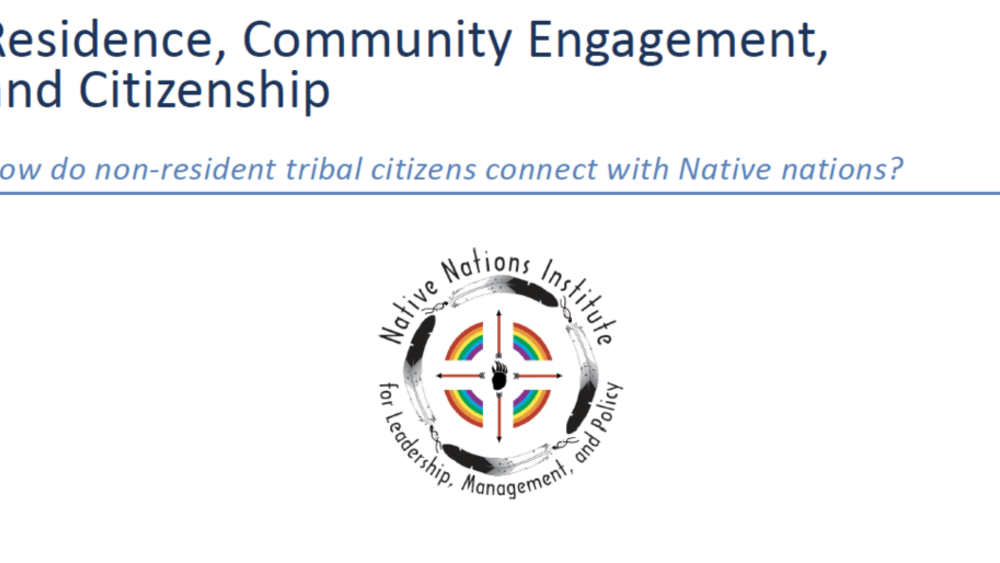
Residence, Community Engagement, and Citizenship: How do non-resident tribal citizens connect with Native nations?
The research draws from an online survey targeted primarily at younger tribal citizens living away from tribal lands; this project provides preliminary insight into 1) non-resident citizens' engagement with their tribes, and 2) the ways tribes might connect more effectively with non-resident…
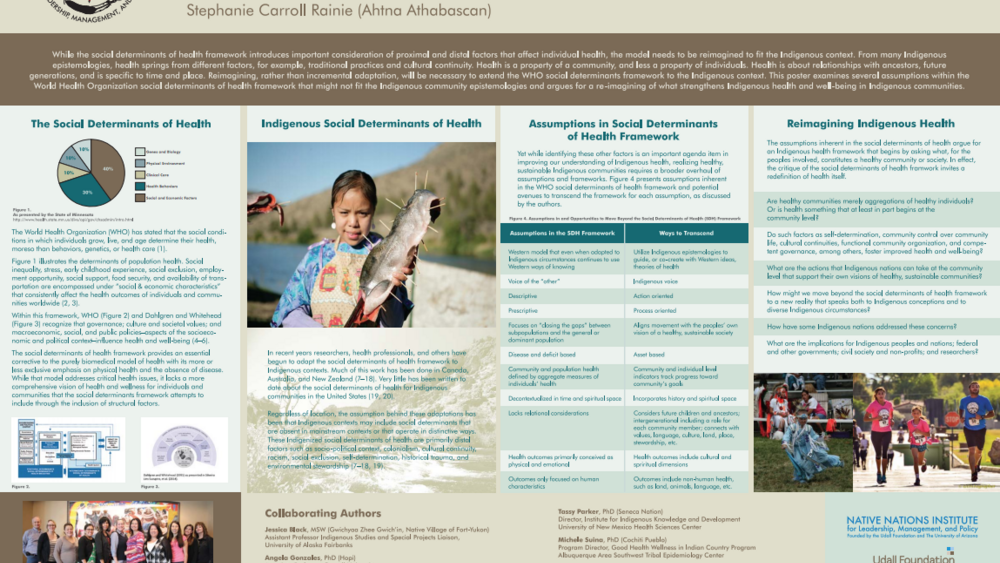
Reimagining Indigenous Health: Moving Beyond the Social Determinants of Health
Senior researcher Stephanie Carroll Rainie critiqued the application of social determinants of health models in Native communities and challenged readers to reconsider how they think about Indigenous health.
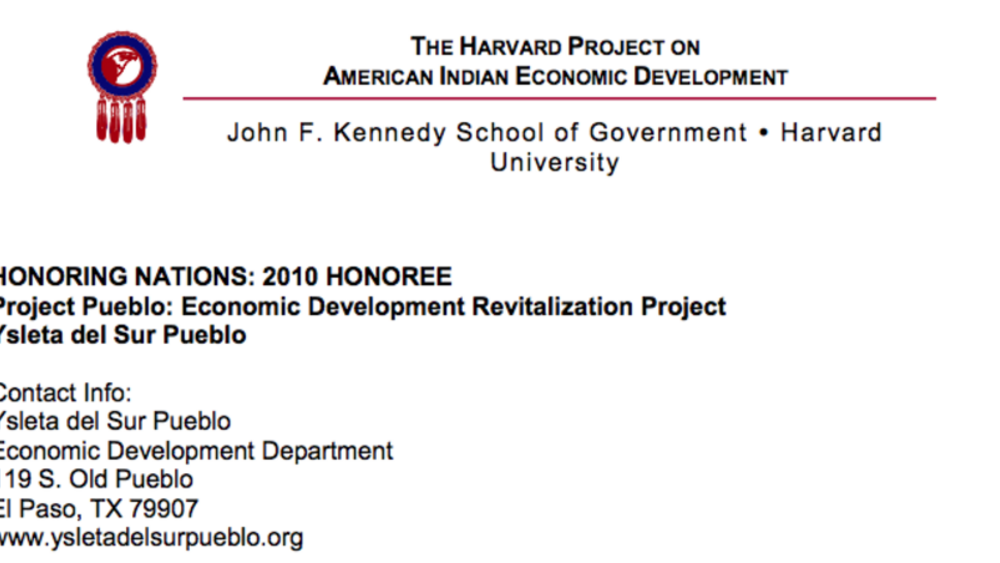
Project Pueblo: Economic Development Revitalization Project
A strong economy is one of the foundations of a healthy community. Native nations use business profits and tax revenues to invest in areas such as health, education, culture, and public safety programs to meet the needs of tribal citizens. At the Ysleta del Sur Pueblo, a sudden economic decline in…
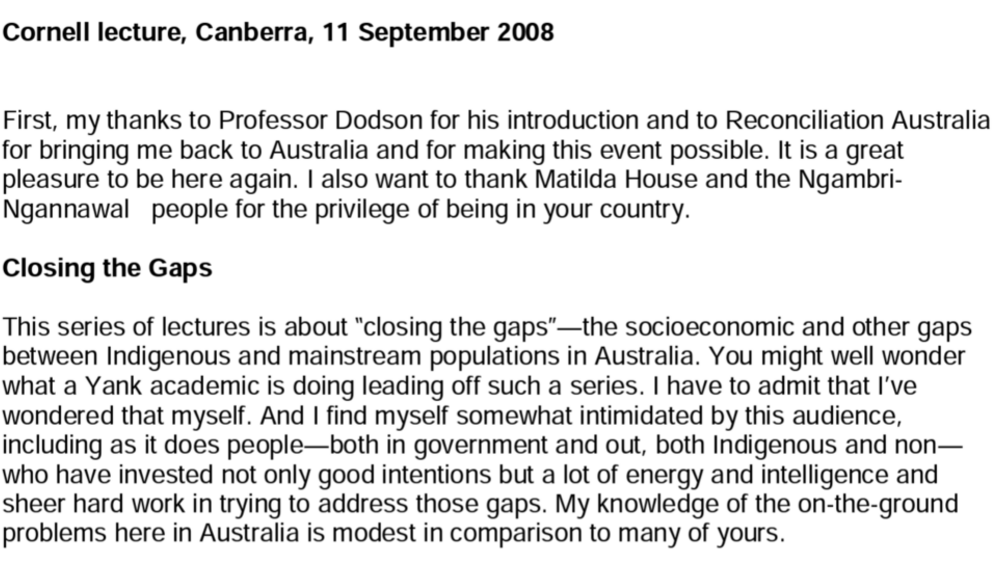
Closing the Gap: A North American Perspective
This series of lectures is about “closing the gaps”–the socioeconomic and other gaps between Indigenous and mainstream populations in Australia. You might well wonder what a Yank academic is doing leading off such a series. I have to admit that I’ve wondered that myself. And I find myself somewhat…
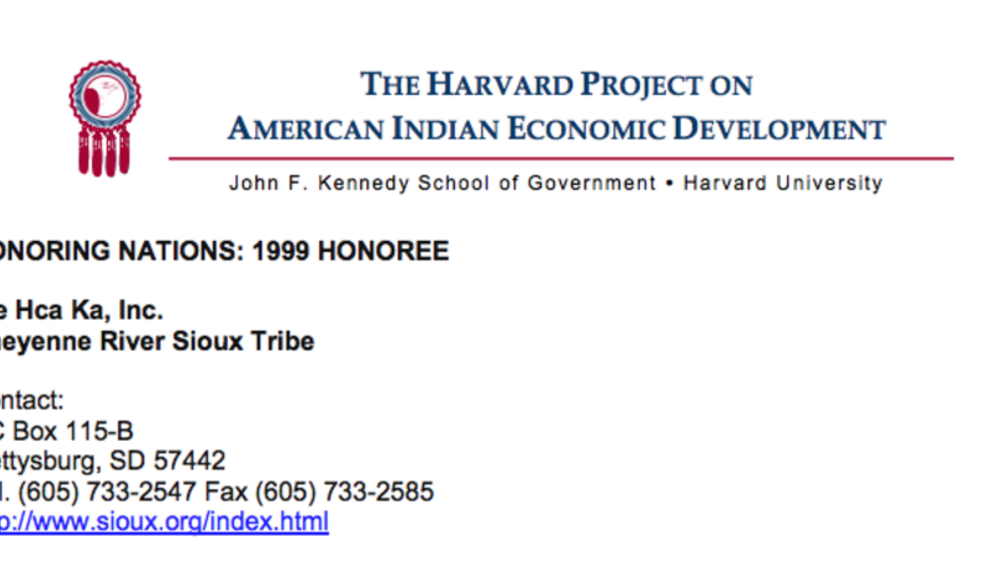
Pte Hca Ka, Inc. (Cheyenne River Sioux Tribe)
This tribally chartered corporation developed a culturally compatible management system for reestablishing buffalo as a focal point for socio-economic development, community cohesion, and self-determination. Pte Hca Ka, Inc. operates a mobile meat processing facility, and is currently seeking…
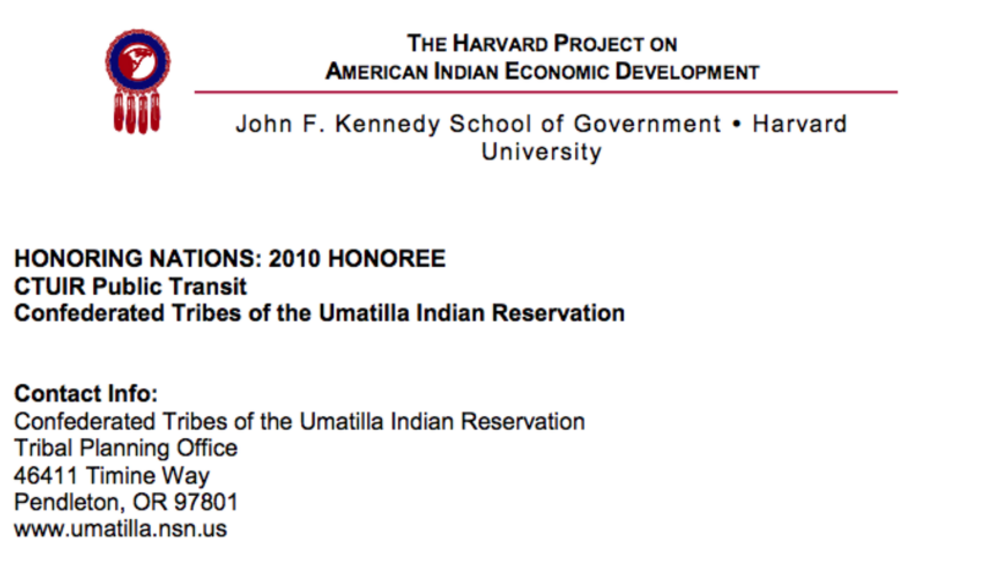
Umatilla Public Transit
In most rural areas of America, if you do not have a car it is difficult to get around. Without transportation, people must depend on friends or family for rides. It can be tough to plan medical appointments, maintain work schedules, shop for necessities, or sign up for classes. The Confederated…
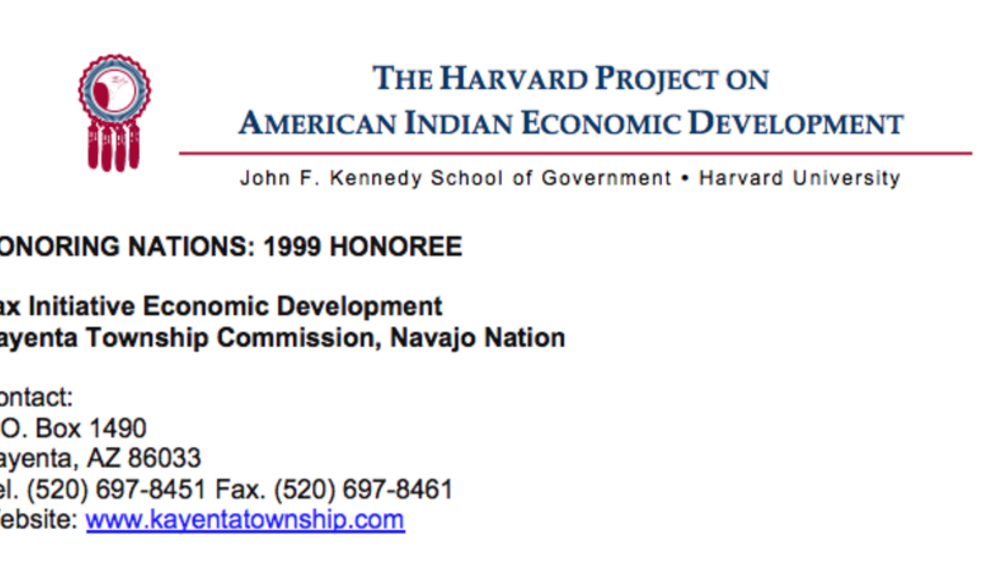
Kayenta Township Tax Initiative for Economic Development
In 1997, Kayenta became the first township on the Navajo Nation to take advantage of new opportunities for local governmental authority by implementing a 2.5% retail tax that brings in hundreds of thousands of dollars annually. This revenue has enabled the Township to build a solid waste transfer…
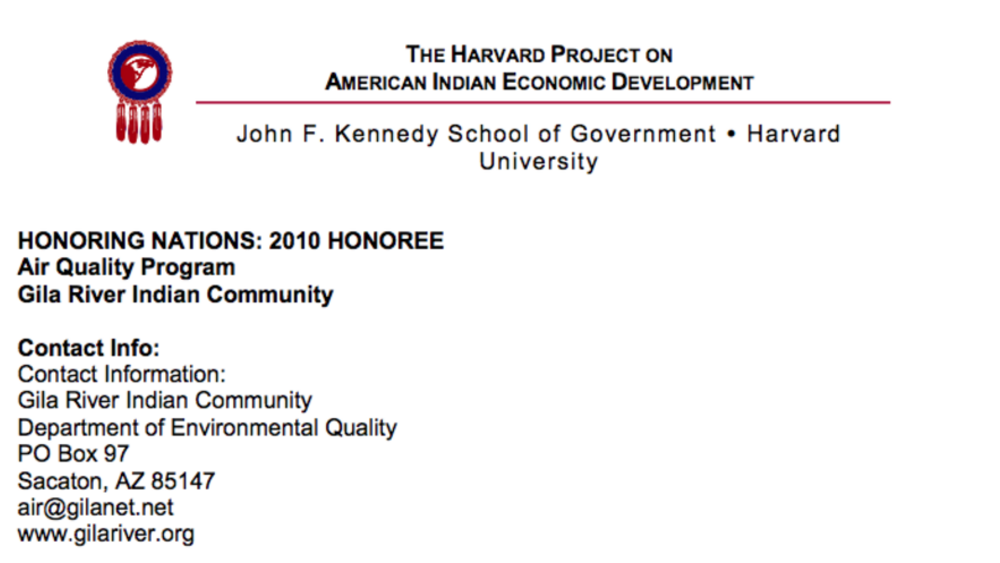
Gila River Indian Community Air Quality Program
In recent years, tribal governments in the United States have passed sophisticated laws and regulations to manage social and economic development in their communities. Although air quality is an important aspect of both economic growth and human health, very few Native nations have successfully…
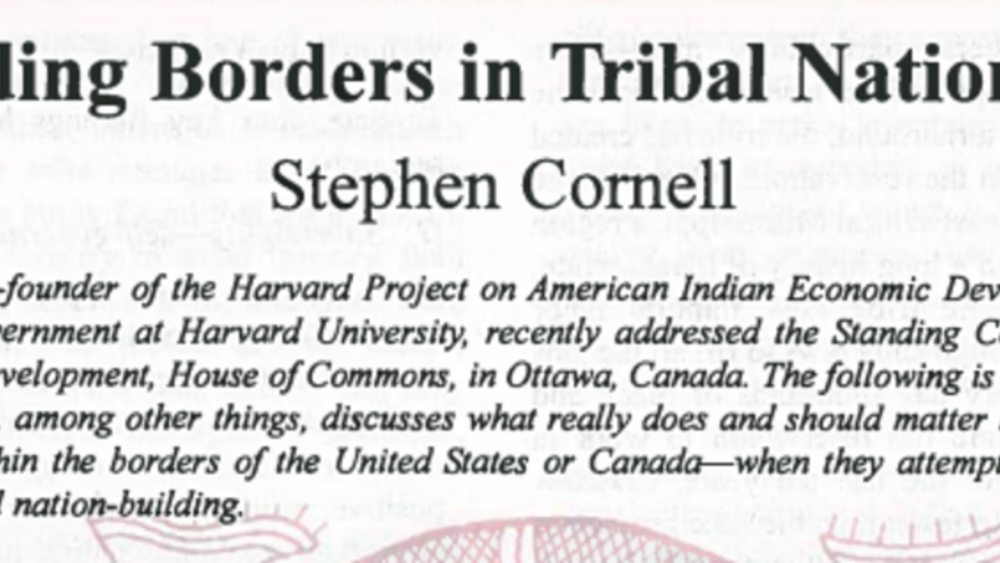
Transcending Borders in Tribal Nation-Building
Dr. Stephen Cornell addressed the Standing Committee on Aboriginal Affairs and Northern Development, House of Commons, in Ottawa, Canada. The following is the excerpted transcript from his address, which, among other things, discusses what really does and should matter to Indigenous peoples--…
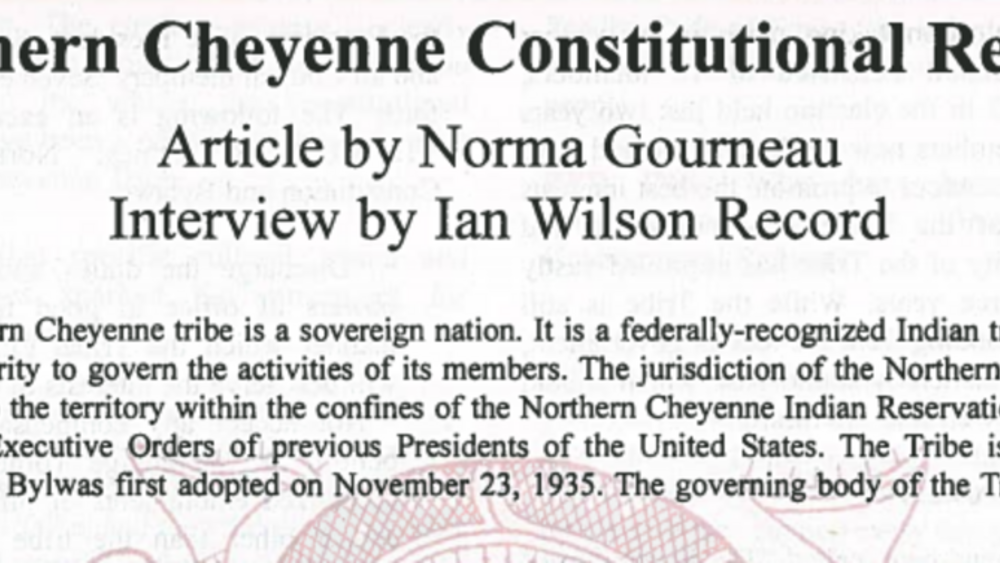
Northern Cheyenne Constitutional Reform
The Northern Cheyenne Tribe is a sovereign nation. It is a federally-recognized Indian tribe with powers and authority to govern the activities of its members. The Tribe is governed by a Constitution and Bylaws first adopted on November 23, 1935. In the early 1990s, in order to meet the…
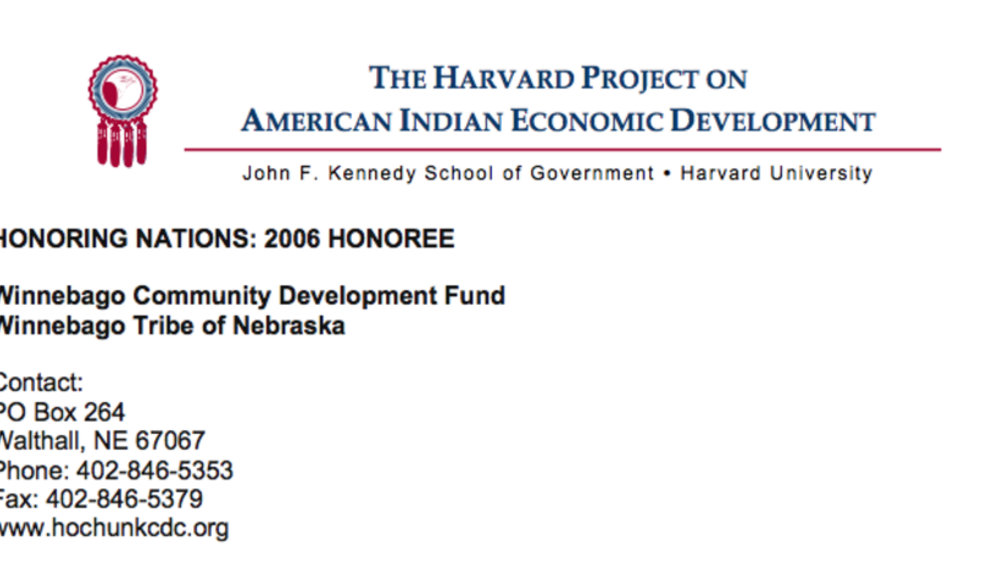
Winnebago Community Development Fund
Establishing a framework for community development based on the goals of the government and its citizens, the Winnebago CDC Fund builds toward long-term development by matching funds for grants, building community projects, supplementing community infrastructure, increasing educational…
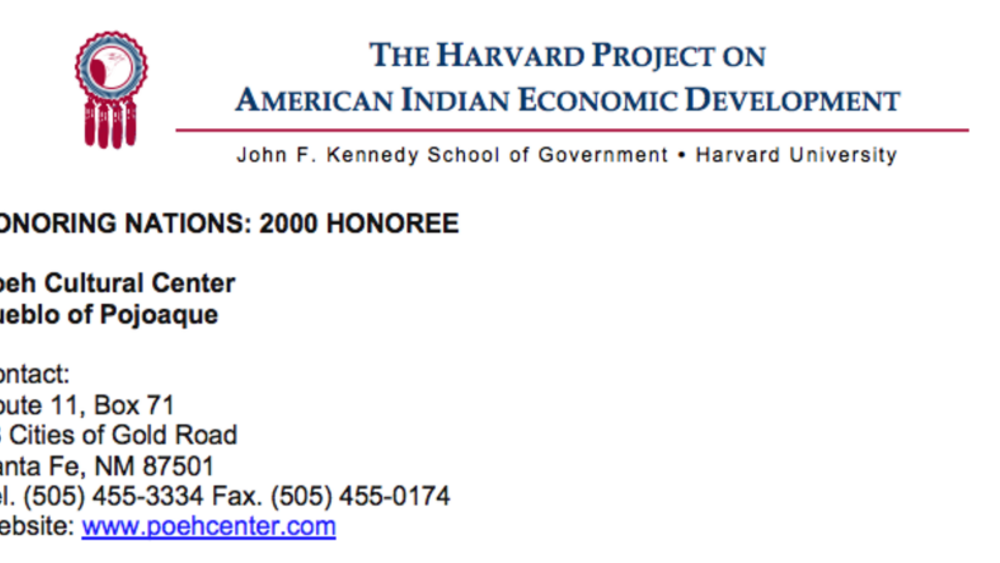
Poeh Center: Sustaining and Constructing Legacies (Pojoaque Pueblo)
Faced with the common challenge of raising funds for construction of a cultural center and museum, the Tribal Council created the Pojoaque Pueblo Construction Services Corporation in 1993. The Corporation’s chartering mandate was to generate revenues for cultural activities and to oversee the…
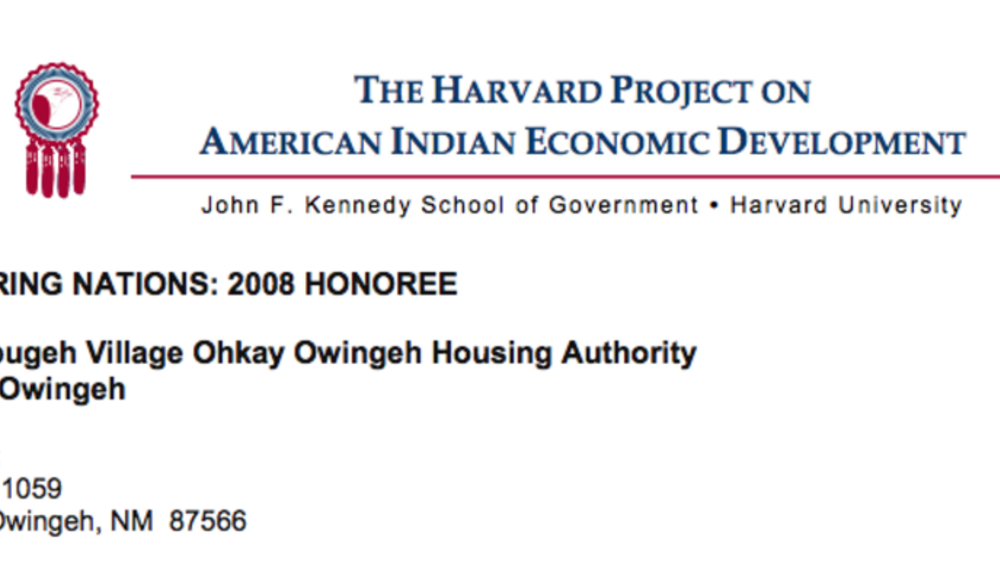
Tsigo bugeh Village (Ohkay Owingeh Pueblo)
Restoring communal living through Pueblo-style housing, the Tsigo bugeh Village offers "traditional living with a modern touch" for Ohkay Owingeh citizens. Designed to honor a sense of community and place, Tsigo bugeh addresses Ohkay Owingeh’s urgent housing demands with 40 units for single and…
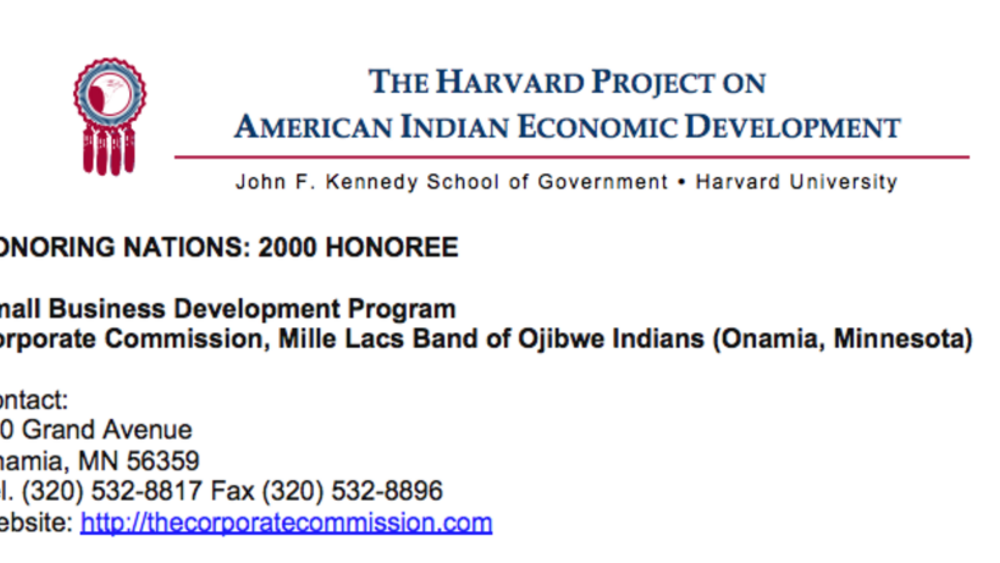
Mille Lacs' Small Business Development Program
The Small Business Development Program assists Band members in developing the private sector economy by providing low-interest loans up to $75,000 to businesses that are at least 60 percent owned and operated by Band members located on or near the Reservation. The Program offers both "micro" loans…
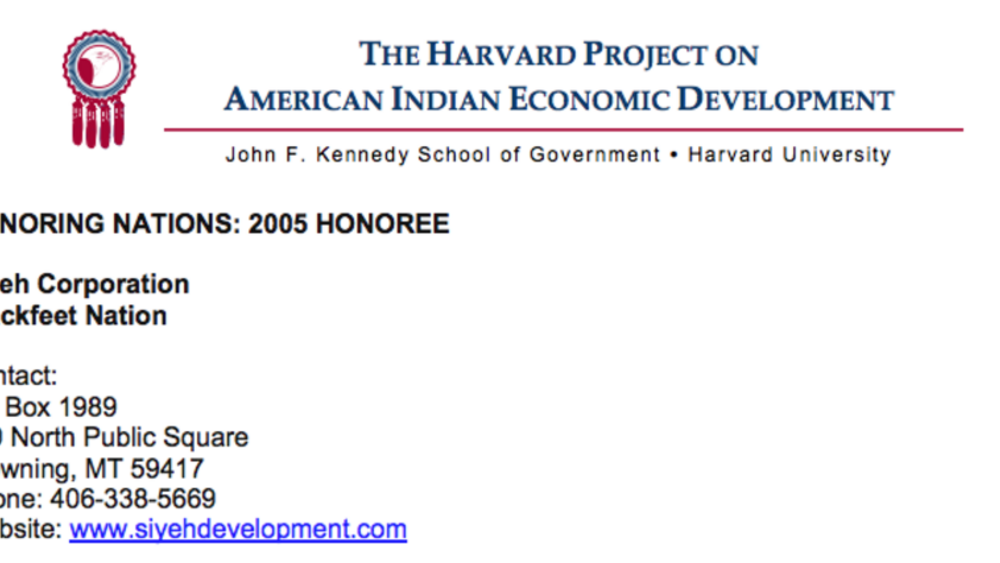
Blackfeet Nation's Siyeh Corporation
For years the Blackfeet Nation struggled to create sustainable tribal enterprises that could produce revenue for the nation and meet the needs of its citizens for jobs and services. Many of these efforts did not succeed because of conflicts within the tribal government. In 1999, the Nation tried a…
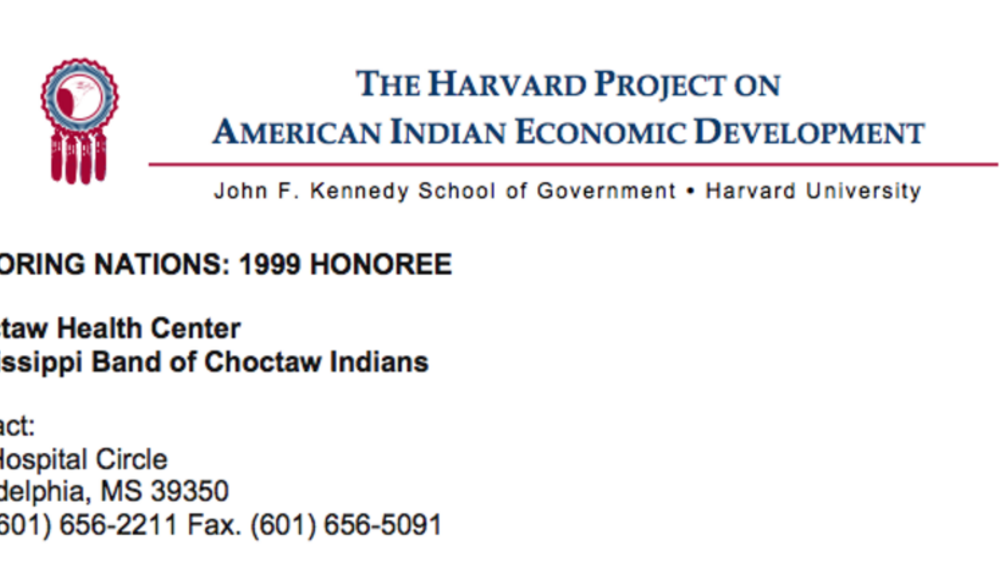
Choctaw Health Center
After transferring all health care decisions from Indian Health Services to tribal control over a ten-year period, the Band significantly improved its health care delivery system. Its state-of-the-art Health Center provides health and dental care, behavioral health care and community health…
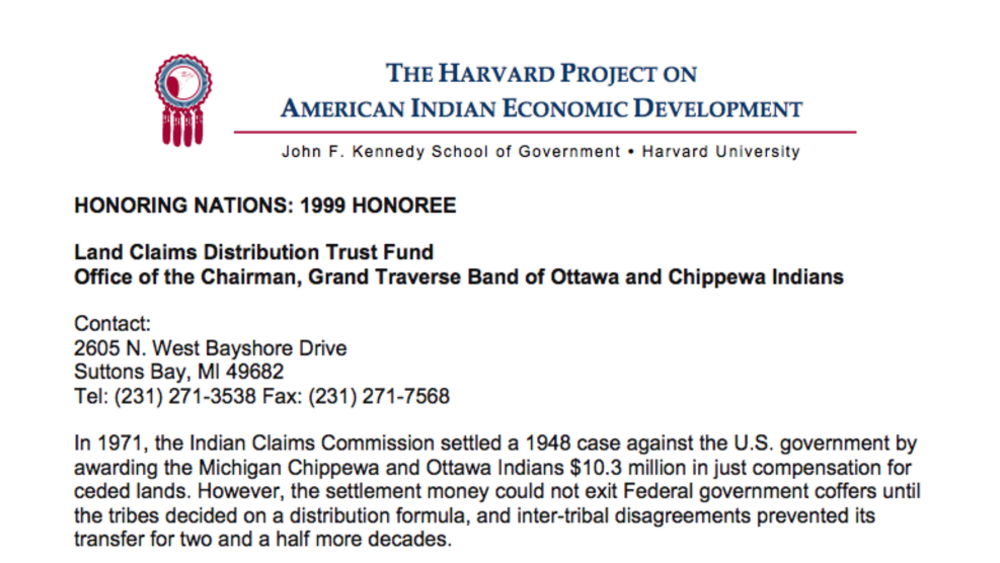
Grand Traverse Band's Land Claims Distribution Trust Fund
After 26 years of negotiation with the US government over how monies from a land claims settlement would be distributed, the Band assumed financial control over the settlement by creating a Trust Fund system that provides annual payments in perpetuity to Band elders for supplementing their social…
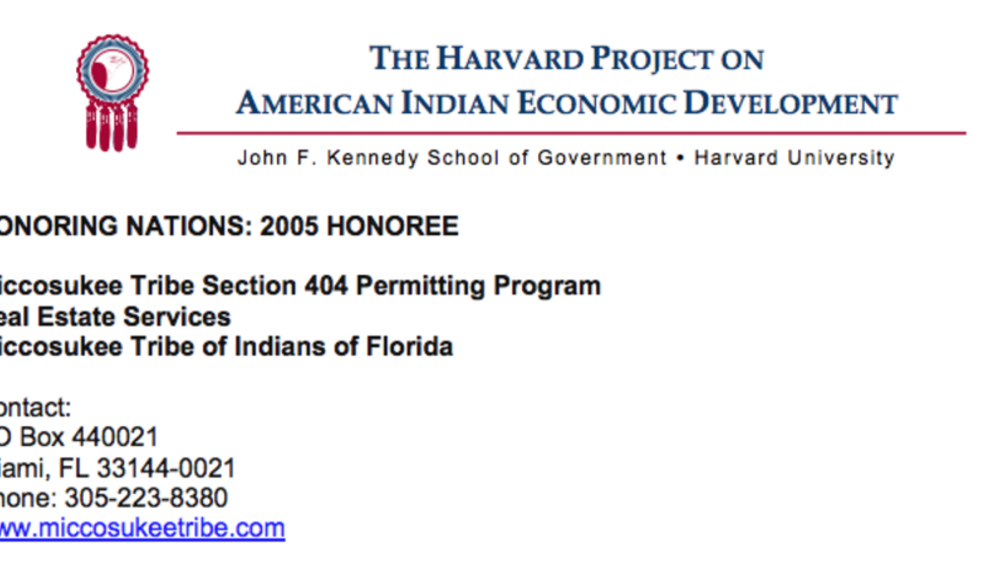
Miccosukee Tribe Section 404 Permitting Program
The reservation lands of the Miccosukee Tribe lie largely within the Everglades National Park. Development on these lands is subject to elaborate regulations by a host of federal agencies that hindered development and other uses of their lands by the Miccosukee people, including the building of…
Pagination
- First page
- …
- 3
- 4
- 5
- …
- Last page
